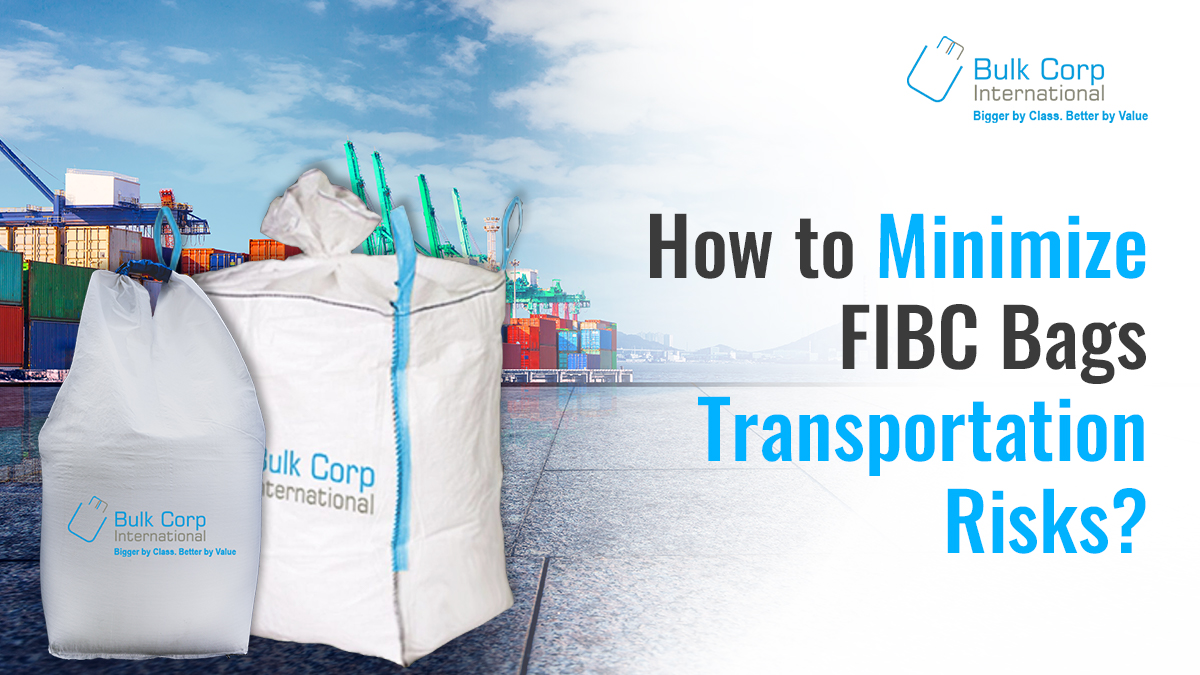How to Minimize FIBC Bags Transportation Risks?

FIBC Bags are undoubtedly one of the best shipment options in the modern-day era. They offer secure and resilient protection to the products stacked in bags during transportation. However, when your inventory is in transit, it is vulnerable to several natural contaminants, such as water, moisture, and air, and external factors, such as friction and vibration generated when bags strike against rough surfaces.
FIBC bag manufacturers provide handling instructions to avoid these scenarios. However, even after implementing all the safety guidelines, FIBC bags are exposed to several risks, such as water damage during transit via ships, load shifting, mishandling, chemical burns, fire, and more.
In this blog, we will walk you through potent ways that handlers and transportation teams can execute to minimize risks related to FIBC bag transportation.
Tips to Minimize Transportation Risks
FIBC bag manufacturers and users suggest multitudinous ways to minimize Transportation risks associated with FIBC bags. However, not all of them are worthwhile. We recommend the following tips to get the intended results:
1. The foremost thing you must do is efficiently load your FIBC Bags, ensuring even distribution amongst all bags to avoid toppling over another due to load shifting and hanging of bags over the pallet’s edge.
2. Another tip we recommend is choosing the correct transportation for the shipment of your goods so that the space is optimized. Available options for transportation are: Trucks, Containers, Break Bulk Cargo vessels and airplanes.
3. We suggest using pallet wrap on pallets to keep your materials inside FIBC Bags from moisture intrusion and load shifting. Keep your pallets dry, not moist, as it will lead to insect infestations. Pallet wrap keeps bags stacked neatly in their place during transportation. It is highly compelling, especially when you want to ship goods on a massive scale.
4. Another vital tip every FIBC bag user must implement is buying an insurance cover for their shipments to insure their goods in transit. For instance, you can purchase marine insurance when you plan to transport products via waterways. A transit insurance is to keep stock insured while transporting through roadways.
5. Lastly, obtain the necessary information and materials from your FIBC bag manufacturer for secured packaging and transportation of goods. For instance, at Bulkcorp International, we offer our clients wooden pallets and all essential assistance according to your FIBC bag applications to ensure they can securely ship their products and commodities.
Conclusion
After reading the blog, you will be familiar with crucial tips to minimize FIBC bag transportation risks. By implementing all the recommendations we provided in the blog, you will attain the desired outcomes of securely executing all shipments. However, if you want more tips or have questions, feel free to contact us.
At Bulkcorp International, we manufacture customized FIBC Bulk bags according to clients’ requirements and bag applications. We provide all the required information, materials, and guidelines to ensure they can worry-free transport goods in FIBC bags.
For a quotation of our FIBC Bulk bags, contact us at +91-79-29795319 or email info@bulkcorp-int.com.





